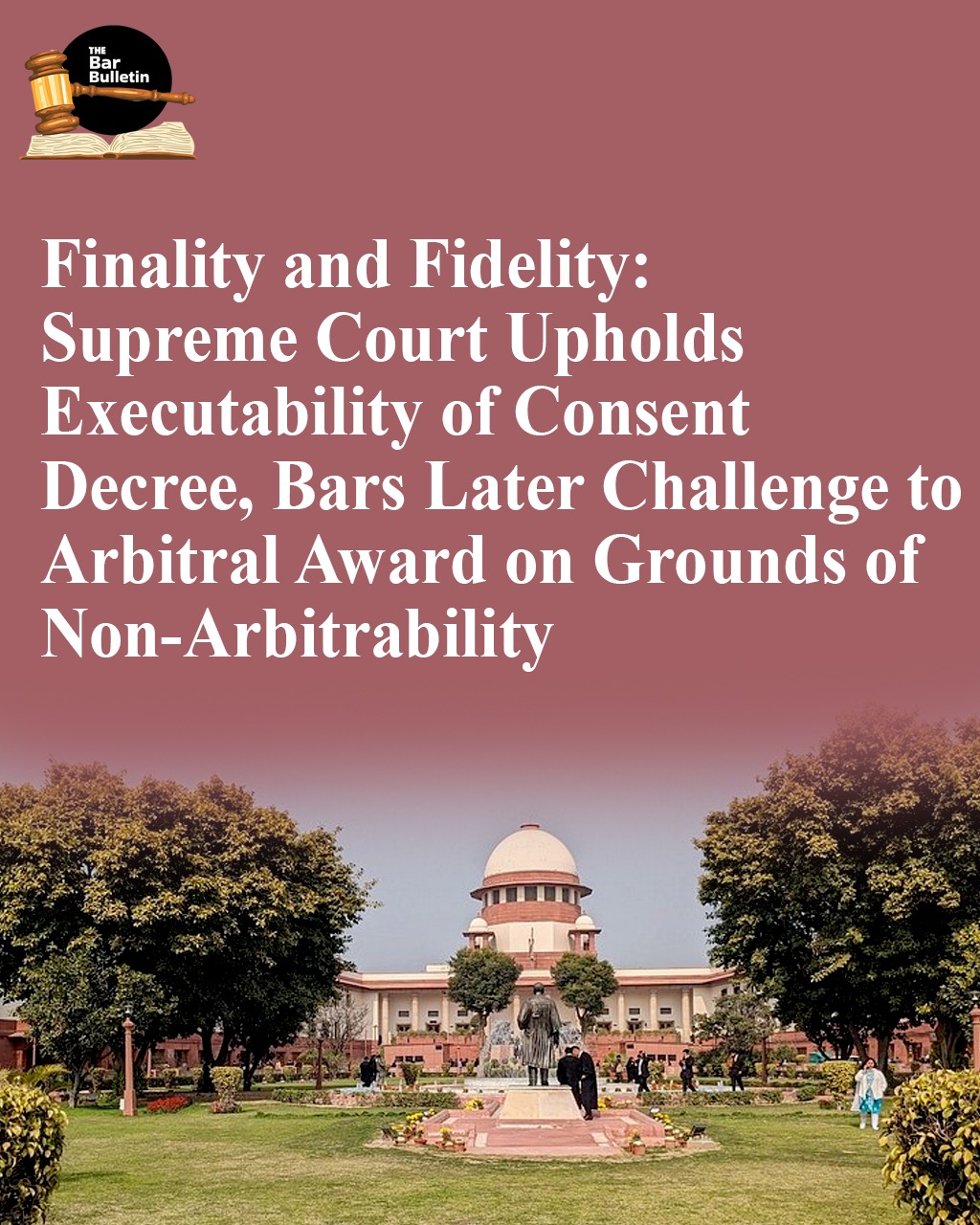The Supreme Court of India, while deciding a Special Leave Petition, affirmed the doctrine of estoppel by conduct, holding that litigants cannot “approbate and reprobate”, i.e., accept the benefits of an agreement or decree, and later challenge its validity to escape their obligations.
The dispute arose among rival claimants to trusteeship of the Guru Tegh Bahadur Charitable Trust, which operated a school in Meerut. The respondents initiated a civil suit to restrain the appellants from interfering with the Trust’s school. The appellants, in turn, invoked Section 92 of the Code of Civil Procedure (“CPC”), 1908, arguing that such a suit, concerning the administration of a public charitable trust, must comply with requirements of Section 92 CPC and was therefore barred. The Trial Court upheld this objection, rejecting the plaint under Order VII Rule 11 of the CPC.
In the respondents’ appeal to the District Court, both factions agreed to submit their disputes to arbitration, jointly appointing a sole arbitrator. The arbitrator issued an award on 30 December 2022, which the parties expressly accepted as final and binding in a joint application before the District Court. By order dated 27 January 2023, the appeal was disposed of and a compromise decree was passed as per the terms of the arbitral award. Both sides confirmed their acceptance of the award and the compromise deed, and there was no challenge to this decree thereafter.
Dispute arose when the appellants, having undertaken steps mandated by the consent decree, such as withdrawing a pending police complaint and performing other obligations, found the respondents unwilling to reciprocate. The appellants initially filed execution proceedings for the consent decree but withdrew them to instead seek interim measures under Section 9 of the Arbitration and Conciliation Act (“ACA”), 1996, premised on the arbitral award.
At this stage, the respondents reversed their earlier stance. They contended that the arbitral award and the consequent compromise decree were a nullity, since disputes involving public charitable trusts governed by Section 92 CPC are non-arbitrable. The Commercial Court and, later, the High Court agreed, ruling that such an award was void and refused the appellants any relief under Section 9 ACA.
On appeal, the Supreme Court Bench comprising Justice Atul S. Chandurkar carefully considered whether a party, having induced its adversary to change position and act upon compromise terms, is permitted to later contend that the underlying consent decree or award is void as non-arbitrable. The Court held that the doctrine of election and estoppel by conduct prohibits such inconsistent positions. It rejected the technique of “approbation and reprobation,” where a litigant cannot accept or benefit from an order or decree when advantageous, and then challenge its jurisdiction or legality when disadvantageous.
The Bench found it especially significant that the respondents had not just acquiesced but actively requested that the appeal be disposed of in terms of the award, then failed to comply, and attempted to evade the decree by raising a fundamental objection to arbitrability.
The Court clarified that even if, as a matter of law, questions under Section 92 CPC could not be arbitrated, the parties’ conduct of accepting, acting upon, and not challenging the consent decree, barred a subsequent reversal. The principle of “no estoppel against law” was held inapplicable in light of the respondents’ complete acquiescence and misleading conduct to the detriment of the appellants.
In conclusion, the Supreme Court set aside the Commercial Court and High Court decisions. It restored the execution proceedings, permitting the appellants to pursue execution of the compromise decree.
Relied on:
Mumbai International Airport Private Ltd. vs Golden Chariot Airport, (2010) 10 SCC 422
R.N. Gosain vs Yashpal Dhir, SLP(C) No. 4325 of 1992; decided on 23 October 1992
Dhiyan Singh vs Jugal Kishore, AIR 1952 SC 145



